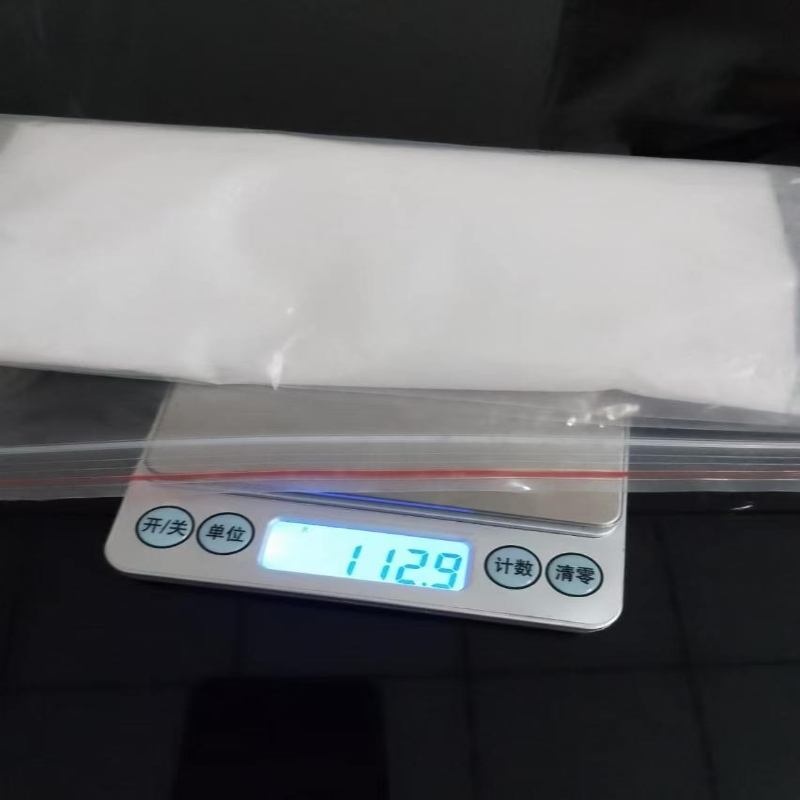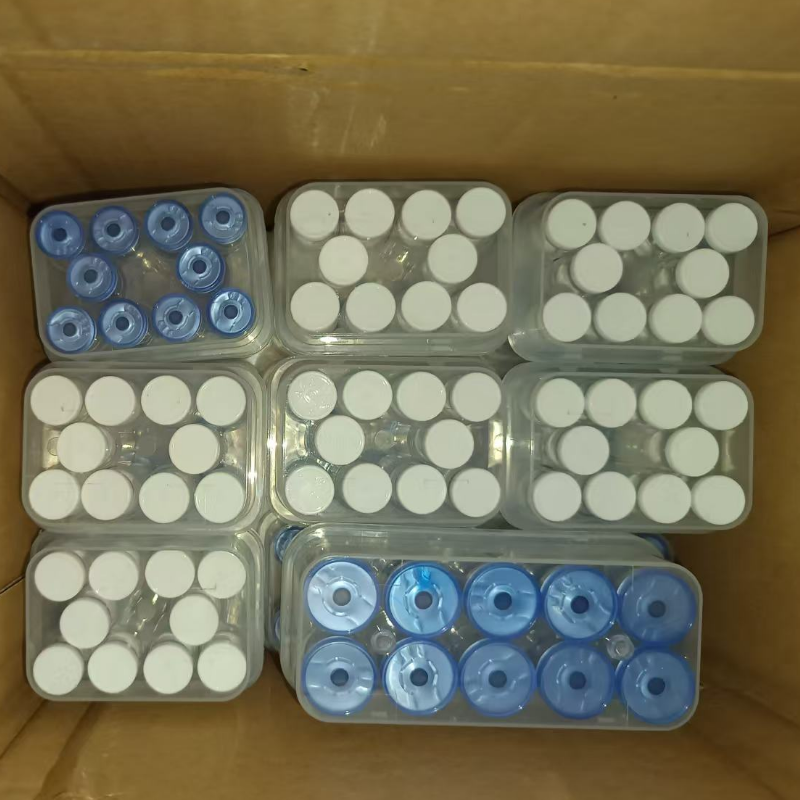-
Categories
-
Pharmaceutical Intermediates
-
Active Pharmaceutical Ingredients
-
Food Additives
- Industrial Coatings
- Agrochemicals
- Dyes and Pigments
- Surfactant
- Flavors and Fragrances
- Chemical Reagents
- Catalyst and Auxiliary
- Natural Products
- Inorganic Chemistry
-
Organic Chemistry
-
Biochemical Engineering
- Analytical Chemistry
-
Cosmetic Ingredient
- Water Treatment Chemical
-
Pharmaceutical Intermediates
Promotion
ECHEMI Mall
Wholesale
Weekly Price
Exhibition
News
-
Trade Service
Thinking, communicating, summarizing, and seeking development are the driving forces for the development of medicine, and they are also the habits
that doctors in the field of blood have adhered to for decades.
Although there was a pre-epidemic, it could not resist the pace
of their exchanges and discussions.
On November 10, 2022, the "25th National Congress of Clinical Oncology, 2022 CSCO Academic Annual Conference, 10th CSCO Leukemia and Lymphoma Expert Committee Academic Conference, 7th Anti-leukemia and Lymphoma International Summit Forum and CSCO Leukemia Leukemia and Leukemia" hosted by the Chinese Society of Clinical Oncology (CSCO), CSCO Leukemia Expert Committee and CSCO Lymphoma Expert Committee, and hosted by Harbin Institute of Hematological Oncology and Peking University Cancer Hospital were held by Harbin Institute of Hematological Oncology and Peking University Cancer Hospital & Lymphoma Expert Committee Tour - Harbin Station" officially kicked off
.
Tumor-related anemia (CRA), thrombocytopenia (CTIT) caused by tumor treatment is a common complication in tumor treatment, the standardization of clinical treatment management is related to the treatment process of patients, the conference special session on tumor-related anemia/tumor-related thrombocytopenia (CRA/CTIT), invited many experts in the field of hematology, to explore the CRA/CTIT whole process management specifications
.
The highlights are now compiled below for the benefit of readers
.
Professor Ma Jun of Harbin Institute of Hematology and Oncology delivered an opening speech
.
CRA and CTIT are common complications of tumor or tumor treatment, and it is hoped that through the formulation and explanation of guidelines and consensus, clinicians will have evidence to follow, drugs to treat, and establish a standardized, standardized, precise and individualized treatment system, so that tumor patients can prolong the survival period and achieve higher clinical cure
.
I wish this meeting a complete success!
Professor Ma Jun made an opening speech
First of all, Professor Li Yan from the First Affiliated Hospital of China Medical University and Professor Sun Tao from Liaoning Cancer Hospital presided over the academic reports
.
Professor Li Yan and Professor Sun Tao presided
Professor Donglu Zhao gave a wonderful speech
Professor Donglu Zhao from Harbin Institute of Hematology and Oncology shared the overview and harms of tumor-related anemia and the interpretation of the latest CRA guidelines of CSCO
.
In recent years, the number of new cancer cases and deaths in China has ranked first in the world, and the incidence of tumor combined with anemia is high, and the standardized diagnosis and treatment of CRA is very important
.
CSCO's latest CRA guidelines recommend that non-chemotherapy-related tumor-related anemia, tumor chemotherapy-induced anemia, and non-tumor-related anemia should be evaluated and treated symptomatically according to the cause of anemia
.
Professor Wang Haixia gave a wonderful speech
Professor Wang Haixia from the Cancer Hospital of Chongqing University shared the interpretation of Chinese expert consensus on the management of adverse reactions of PARP inhibitors
.
The overview of PARP inhibitors, the overview of adverse reactions of PARP inhibitors, the adverse reactions of PARP inhibitors, the treatment of non-hematologic adverse reactions of PARP inhibitors and anemia were described
from five aspects.
Professor Wang Haixia pointed out that the adverse reactions of PARP inhibitors may be related to drug target effects and off-target effects, and adverse reaction management can help improve patients' drug treatment compliance, thereby improving patients' clinical outcomes
.
Clinical diagnosis and treatment should combine Chinese and Western medicine, nutrition, doctor-patient communication and education, etc.
, so that patients can benefit from survival to the greatest extent
.
Professor Helijie gave a wonderful speech
Professor He Lijie of Liaoning Provincial People's Hospital shared the research progress
of CRA weekly therapy.
At present, rHuEPO has a variety of weekly therapy regimens (30000~80000IU QW or 450IU/kg QW), and the study shows that weekly therapy is comparable in efficacy and safety compared with weekly multi-dosing regimen (36000IU QW/40000IU QW is equivalent to 3 weekly dosing regimens), which can improve CRA, reduce blood transfusion rate, improve patients' quality of life and cognitive function, etc.
, and the overall tolerability is good, without accelerating tumor progression
.
。 Session 2
The subsequent academic presentation session was chaired by Professor Feng Jifeng of Jiangsu Cancer Hospital and Professor Pan Hongming of Run Run Shaw Hospital affiliated to Zhejiang University School of Medicine
.
Professor Feng Jifeng and Professor Pan Hongming presided
Professor Liu Bo gave a wonderful speech
Professor Liu Bo of Shandong Cancer Hospital interpreted
the 2022 CSCO-CTIT guidelines.
In recent years, although new drugs for tumor treatment have emerged one after another, the process of anti-tumor treatment is still often delayed by CTIT, and CTIT treatment urgently needs to be further standardized
.
Professor Liu Bo elaborated
on CTIT diagnosis, CTIT treatment, CTIT secondary prevention, CTIT treatment precautions, CTIT prognosis and prognosis.
Combined with clinical studies, the earlier rhTPO is used after the occurrence of CTIT, the more significant the clinical benefit of patients, and the total treatment cost is relatively small
.
Emphasizing standardized treatment and prevention of CTIT can reduce the degree of platelet decline caused by antitumor therapy, shorten the duration of thrombocytopenia, and ensure that antitumor treatment is carried out
as scheduled.
Professor Qiu Meng gave a wonderful speech
Professor Qiu Meng from West China Hospital of Sichuan University talked about the clinical management
of CTIT from the perspective of safety.
CTIT is a common hematological toxicity in anti-tumor therapy, platelet-raising drugs can cause venous thromboembolism, cardiotoxicity, increase liver and kidney burden, through the analysis of common platelet-rising drug safety research progress, suggesting that the choice of drugs for CTIT treatment should comprehensively consider clinical efficacy, drug toxicity, patient comorbidities, drug bioavailability and other aspects
。 It is emphasized that the important premise of CTIT treatment quality is drug safety, and the balance between efficacy and safety should be paid attention to during treatment, and based on bioavailability, evidence-based evidence and comprehensive evaluation of safety, the 2022 CSCO-CTIT guidelines will take rhTPO as a level I recommendation
for CTIT treatment.
Professor Zhang Xudong gave a wonderful report
Professor Zhang Xudong from the First Affiliated Hospital of Zhengzhou University presented an analysis
of the survival benefit of single-center rhTPO in the treatment of lymphoma CTIT patients.
According to the research progress related to the clinical benefit of CTIT therapy, it is emphasized that thrombocytopenia is the main factor affecting the treatment process of tumors, and the clinical study of single-center rhTPO on the treatment of lymphoma CTIT is shared, and the results show that the early use of rhTPO (>75×109/L) in the high-intensity chemotherapy cycle can reduce the probability of grade III-IV CTIT, reduce the delay of chemotherapy, and improve the long-term survival
of patients.
Professor Liu Wenyang gave a wonderful speech
Professor Liu Wenyang from Cancer Hospital of Chinese Academy of Medical Sciences shared the clinical research
on the use of rhTPO in high-risk patients with thrombocytopenia in esophageal cancer.
Starting from the application of radiotherapy in the comprehensive treatment of esophageal cancer, the significance of clinical diagnosis and treatment of thrombocytopenia associated with radiotherapy and chemotherapy for esophageal cancer and the necessity of
radiotherapy-related prediction models for esophageal cancer are emphasized.
The results of clinical studies on the use of rhTPO in patients at high risk of thrombocytopenia in esophageal cancer showed that the Nomo model based on real-world data could better predict the occurrence of thrombocytopenia during radiotherapy for esophageal cancer, and pulmonary radiotherapy measurement did not significantly affect the thrombocytopenia of patients
.
However, the current number of cases is limited, and the results
of bleeding and prognosis of patients cannot be counted.
of clinical CTIT in China.
Summary of the meeting
Professor Pan Hongming finally concluded that CRA, CTIT is a common complication in anti-tumor treatment, experts of this conference published CRA, CTIT related academic reports, from clinical diagnosis and treatment standards to the latest research progress, comprehensive combing of CRA, CTIT treatment specifications, hope that through the study of this conference, you can incorporate CRA, CTIT into the future management of tumor treatment, for accurate prevention and treatment.
Improved patient survival benefit
.
Professor Pan Hongming concluded
Disclaimer: This platform is designed to deliver more medical information
to healthcare professionals.
The content published on this platform cannot replace professional medical guidance in any way, nor should it be regarded as diagnosis and treatment advice
.
If such information is used for purposes other than understanding medical information, this platform does not assume relevant responsibilities
.
The content published by this platform does not mean that it agrees with its description and views
.
If copyright issues are involved, please contact us and we will deal with
it as soon as possible.
Click to read the original article to see more conference videos







